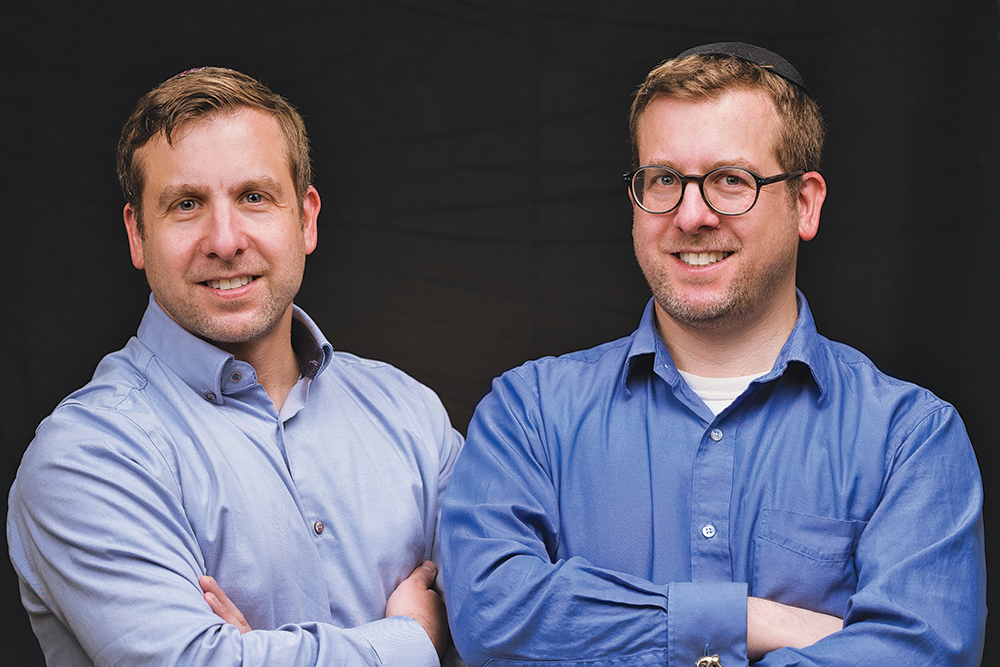
Avi Rosenblatt saw a need to level the playing field for small ecommerce businesses. After receiving a degree in computer science from McGill University, he worked as a programmer for a number of years before transitioning into a development-manager slot for a Fortune 200 company. His responsibilities included building ecommerce platforms. This background opened his eyes and gave him and his brother Eliezer the impetus to form their own company, FutureEcom, in 2019.
Eliezer also had an entrepreneurial spirit, although he arrived at the partnership from a different place. After graduating from Yeshiva University, he went to law school at McGill University’s Faculty of Law. After making aliyah in 2007, he worked at a prestigious law firm in Tel Aviv before establishing his own practice in 2013. He then founded a toy import and distribution company in Israel before transitioning into FutureEcom.
Both brothers were fully aware of inefficiencies and costs involved in building out features of existing platforms, which could be significant even for a large company. For smaller outfits without deep pockets, it would be virtually impossible. Their business plan was to build platforms from the ground up, using their knowledge in both software development and ecommerce to do so at an affordable cost. Their website promises “Speed, security and scalability” as the three pillars they offer new clients. But there’s more. As Avi explained, “I saw a need for a platform that was fully customizable, including both design and functionality, but was also powerful enough to scale when stores had more traffic.” He noted that there are generally two types of ecommerce platforms, SaaS, which is an online service, and self-hosted, which, as the name implies, can be downloaded and hosted by the merchant. The SaaS provider handles the system’s infrastructure, software security updates and tweaks for performance on behalf of the client. Self-hosted puts the control into the hands of clients. They receive code and then customize to their heart’s content. They are given access to all data, including customer interactions. In effect, FutureEcom combines the services normally found in both SaaS and self-hosted platforms.
Avi shared that given the intense competition among online vendors, knowing what to tweak and having the flexibility to make changes when warranted can be the difference between a sale or a lost prospect. For instance, the front end of a website is the part that’s visible to potential customers. Where photos or illustrations should be placed, size of fonts, whether text is positioned on the right or left side of the web page can all effect the level of success for an ecommerce business.
Speed—how long it takes the website to load—is absolutely essential and is another key differentiator for FutureEcom, as is flexibility. Eliezer noted that the average person has an attention span of five seconds when perusing these platforms. A slowdown will often mean the prospect is on to the next site.
When meeting with a small-business owner, FutureEcom’s team initially gathers intelligence on the firm’s industry, its target market, its web design preferences and whether it prefers one of the many standard template offerings or wishes to create a new one. It sounds like a lot, but FutureEcom’s promise is that while most enterprise-grade ecommerce platforms take days or even months to launch a store, their advanced technology can get the job done within minutes. The ability to scale the business over time is also a critical part of their services.
Avi explained that to build their base of clients, initially Eliezer and he would go from store to store seeking early adopters. They onboarded clients from sales outreach. As their business grew they began building relationships with third-party service providers, bringing in clients through them as well. They also have reseller agreements with digital agencies. While Avi generally handles product development, Eliezer focuses on sales, but based on their modest size, their roles overlap at times. He is proud of how well his brother and he have been able to fulfill the needs of small ecommerce businesses. Citing one example, he spoke of a client who already had an existing website that provided mediocre success. “Within a month of using our platform,” he said, “he doubled his online sales.”
In sharing their platform-building expertise with clients, they’ve learned a thing or two about their own competition along the way. Avi explained that the bells and whistles that many platform providers offer can actually be a negative. “They distract from what’s really important—the ability to see how customers are using the site and how to adapt to their needs and expectations.” He also warns prospects about hidden costs that are inherent in many of the most popular platform developers.
For more information, visit www.futureecom.com.
Robert Isler is a marketing research analyst and freelance writer. He can be reached at [email protected].









